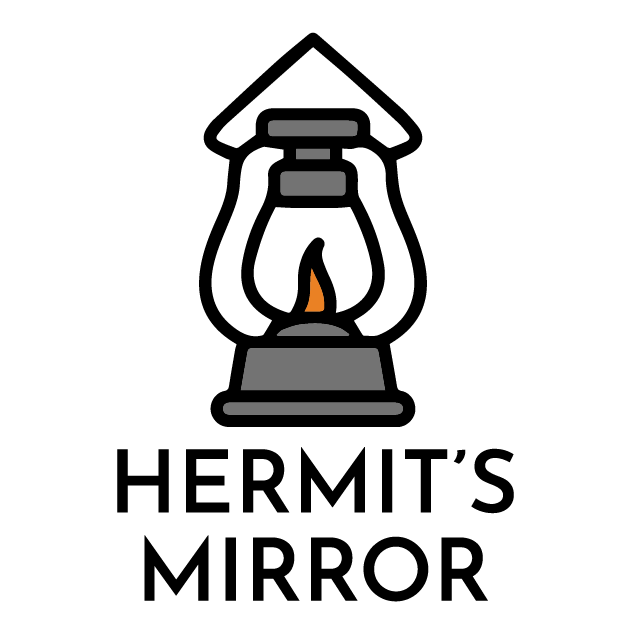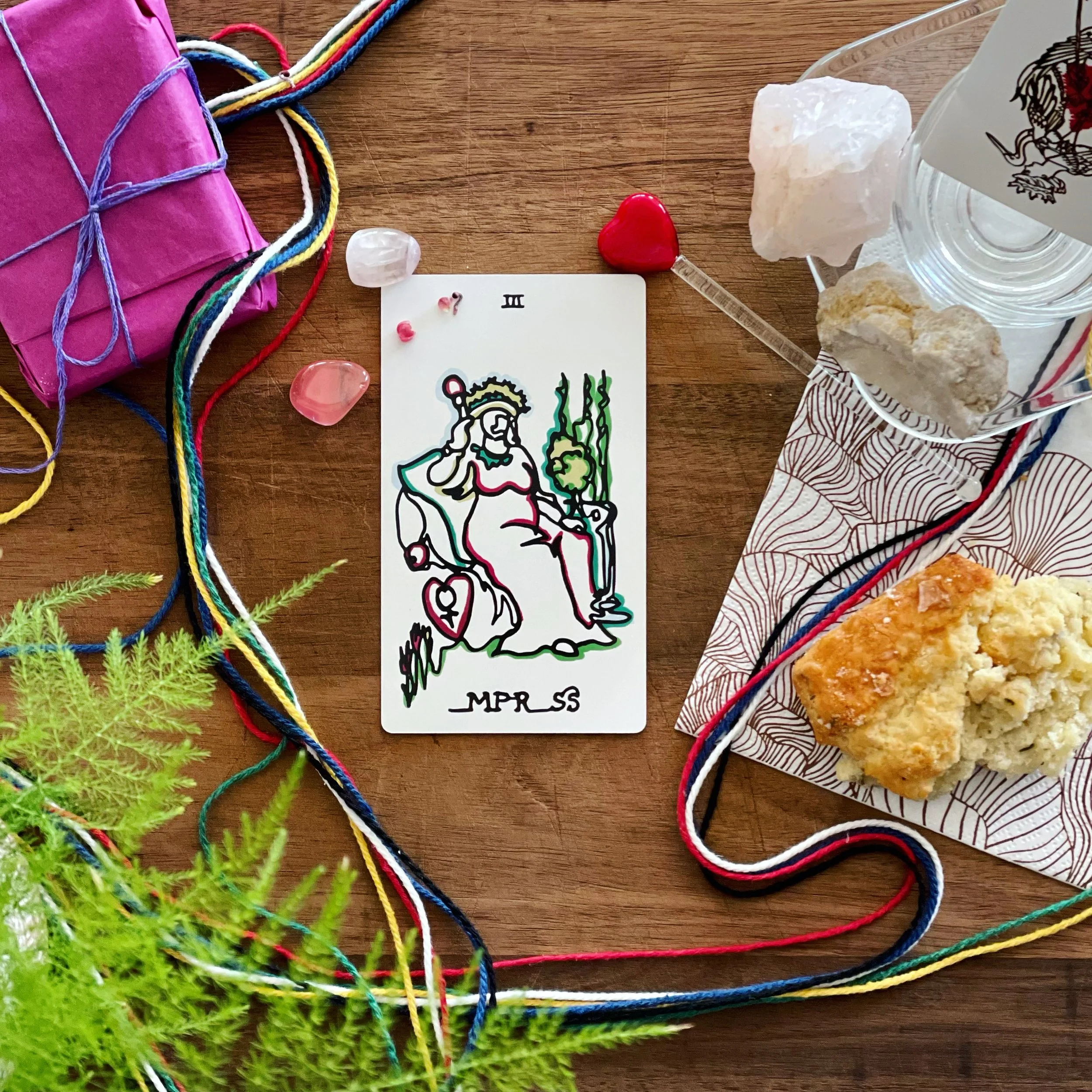Shame and Shadows from Childhood
The shame we experience as children leaves a mark on the Inner Child and can wreak havoc through the Shadow. But as with shadow work, it’s important to shine a light on it to see what’s really there.
Yesterday, Chris Onareo had me on his lighthearted Show Us Your Deck! series on Instagram to talk about the new limited edition of my Life Line Tarot now on Kickstarter, Color Outside the Lines, and we got onto a topic that not enough people recognize: the intersection of inner child work and shadow work. We didn’t get into specifics during that deck creator interview, but a key connection point for me there is shame, and I’ve been thinking about it a lot as I’ve delved into the work of healing the Wounded Child aspect of the inner child. Coincidentally, I recently wrote about it on Instagram in relation to my longstanding difficulty with the divine feminine.
Shame is a powerful and especially uncomfortable area in shadow work. In some ways, it’s relatively easier to focus on pain caused by others or on our own self-inflicted failures. Shame offers up a double whammy: it’s an internally motivated pain tied to a failure to fit in with others. Shame is a topic that I had planned to discuss in my free upcoming shadow workbook (coming to newsletter subscribers in March), but I’ll save it for a later, expanded workbook. I want to work through it with my Inner Child seminar attendees (part of the Kickstarter) first.
So in the meantime, I want to share a story from my own childhood/adolescence to help you think through some of the implications of shame as it arises for you and what you can do with it. Shame, clearly, is not a nice feeling, but as with the other components of our Shadow, it can be examined to help us see our personal strengths and values.
Picture it: a very liberal town in Massachusetts, 1999, and a high school gymnasium filled with teenagers donating blood. At that time, I was a 17-year-old boy who had recently been dumped by his first boyfriend thanks to his (the boyfriend’s) homophobic mother finding out about the relationship. I wasn’t fully “out” yet, but my closest circle of friends and my family knew I was queer, and most everyone else suspected it.
I’d spent the previous two weeks of lunch period signing up my fellow students to donate blood for a charity event my class was hosting, and I was excited to donate alongside them. But when I went to deliver my form to the donation coordinator, I was told I couldn’t donate because I’d checked a certain box on the form. And I had to walk away, without donating blood, in front of a hundred other students, who knew damned well (or soon would) why. I left the gymnasium, angry and hurt and just sick to my stomach, feeling foolish and less-than.
If you’re a gay, bi, or trans man who has ever tried to donate blood in the US, then you know the check box I’m referencing. It asks about your sexual practices with other men.
To be effectively “outed" by a charitable organization you support is a pretty remarkable blow to young person still very much in the process of becoming themself. And that process of accidental exposure would happen year after year whenever well-meaning people would ask me to donate blood for a drive in school, on campus, and then at work. And I would have to explain that I would love to—I even have the kind of veins that practically beg to have blood drawn—but I wasn’t, and I’m still not, allowed to help in this basic way because of my sexuality. It doesn’t have the same sting now that I am nearing 40, but I’m always reminded of my innate Otherness. The people whose opinions I value recognize that it’s a ridiculous guideline based in Reagan-era levels of ignorance. But there are plenty of people who don’t see its foolish harm, and some continue to defend it, accepting that it stigmatizes many people.
I was reminded of this shame while listening to my local public radio station this morning. A member of congress was on, discussing his proposal to change FDA guidelines surrounding blood donation from men who have sex with men. The guideline that is still in place, if altered slightly, prevents us from donating blood because of fear that our blood is somehow secretly tainted with HIV, as if the virus can’t be in anyone’s blood and as if blood donations aren’t tested for blood-borne diseases. It’s an infuriating rule, and I’m hopeful that the current blood shortage will force an update to an outdated, scientifically ill-informed, and homophobic guideline. But far more clearly than hope, this news program brought to mind that past shame.
Through shadow work and examining that and other moments of childhood that still reside within my Inner Child—so many moments—I’ve learned to recognize the shame as a desire to belong and fit in, to feel “normal” in the face of some part of you that is not like your desired group. Pretty much all of us want to feel accepted and “normal,” and we all have stories of shame where we were excluded or made to feel different or lesser because of some behavior or belief or inherent characteristic. But we don’t have to just sit with the shame or try to work through it as if it’s unimportant. It is important.
When you feel shame, it’s because you want to belong, to be a part of something, or to be like someone, but it’s made clear that you’re not. Shame is humiliating, and it’s often wielded against those who have already been made humble, those who are already outsiders in some way.
Exclusion is key to shame. There are parts of you that might be triggered around your shame but which aren’t related to exclusion from a group, and those are still valid, but they rarely register in the same way as shame. Finding the shades of difference in those feelings offers a useful opportunity for further self-exploration.
Determine whether you actually care about the belonging, in which case your values and that community would be highlighted as an important priority. You can then ask yourself why that’s the case. What do they offer that you feel you need even as you struggle to be included as a valid part of that group? We all have felt this at some point. And when you stop to think about it, you’ll find that the need to be included is rarely about those specific people. Instead, it’s about what they represent and what they have to offer you abstractly. Focusing on what they represent and what they offer will help you find a better source of that need fulfillment. Even better, you might find new associates that recognize the source of your shame as a point of personal distinction and empowerment rather than a reason for humiliation.
Of course, you may find that you are dealing with the internal struggle to accept some part of yourself that has nothing to do with that specific group to which you are Other. In that case, your shame is probably based in some earlier form of exclusion and difference that needs your attention and healing love. It will be a much better use of your time and energy to address that older wound festering in your Wounded Child than addressing the present trigger that is, most likely, not important to the bigger picture of your life.
To sign up for my two-hour seminar on inner child readings in August, you will first need to back my Color Outside the Lines project (even donating at the $5 level will let you add on the seminar in case you don’t want the deck).
If you want to dive deep into your shadows with the help of an experienced guide, schedule a Shadow Voyage session with me. And if you’re ready to do the work on your own, be on the lookout for my free shadow workbook coming to newsletter subscribers in March.

